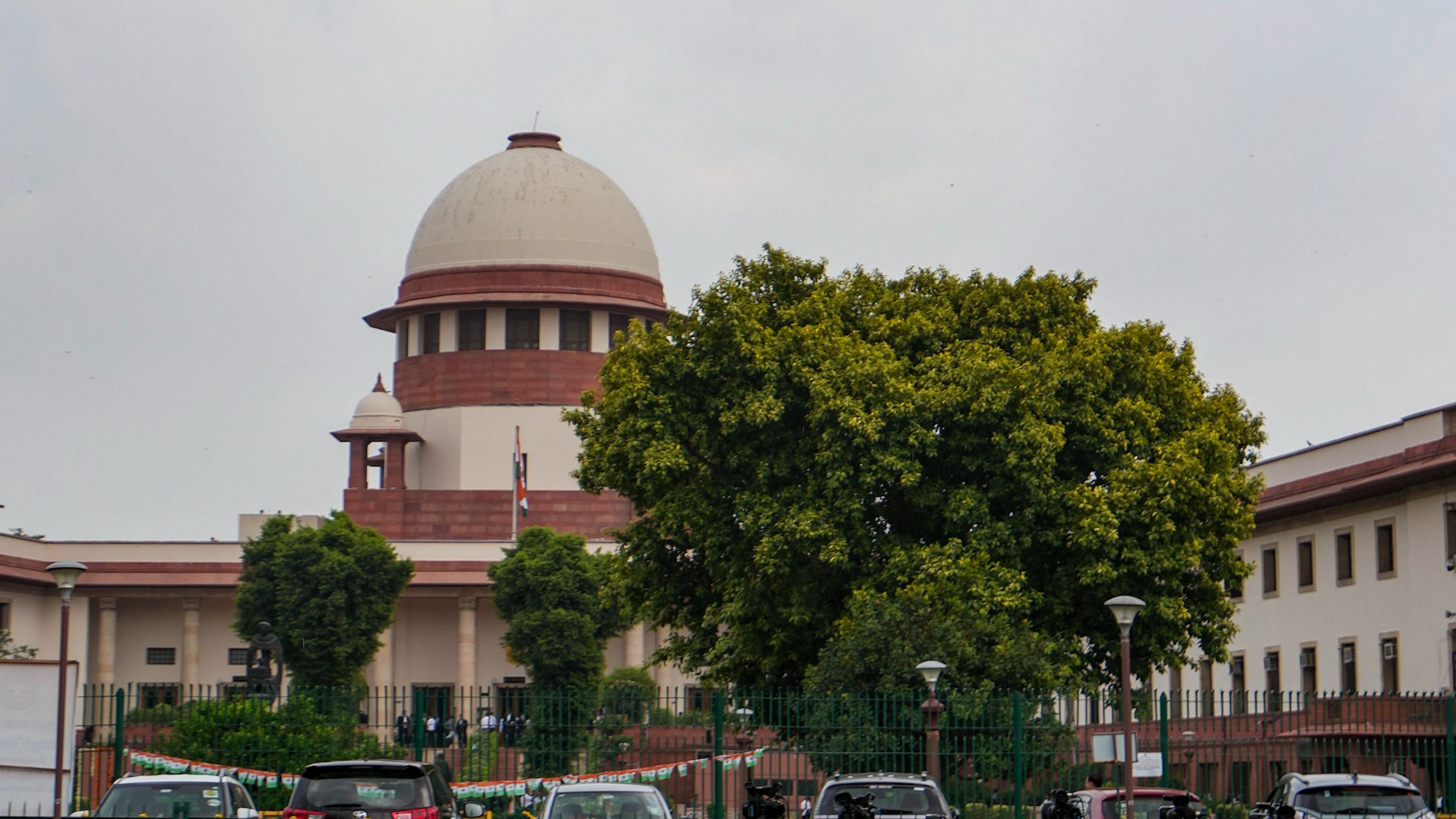
The Supreme Court of India.
Credit: PTI Photo
New Delhi: The Supreme Court on Monday overruled 1998 P V Narasimha Rao case judgment which had granted immunity to any MP from prosecution in a court of law for voting in a particular manner inside the House even after taking a bribe.
After general elections to the tenth Lok Sabha in 1991, Congress (I) emerged as a single largest party with P V Narasimha Rao as its Prime Minister.
However, a no confidence motion was introduced against P V Narasimha Rao.
While the JMM MPs voted against the motion, Ajit Singh abstained allegedly after accepting a bribe.
A complaint was filed with the CBI, alleging Narasimha Rao and several other MPs were parties to the criminal conspiracy and passed on "several lakhs of rupees” to the alleged bribe-takers to defeat the no-confidence motion.
A prosecution was launched against the bribe givers and takers and the CBI took cognisance of the matter. A plea to quash the proceedings before the Delhi High Court was dismissed. Consequently, the matter reached the apex court.
A five-judge bench of then CJI S P Bharucha, and Justices A S Anand, S Rajendra Babu, S C Agrawal and G N Ray dealt with the matter.
Three opinions were rendered in the matter- one by Justices Agrawal and Anand, second by Justices Bharucha and Babu and third by Justice Ray.
Justice Bharucha held that the alleged bribe-takers who cast their vote against the no-confidence motion enjoyed immunity from prosecution in a court of law under Article 105(2) of the Constitution.
However, Ajit Singh (now deceased) who had abstained from voting, and the alleged bribe-givers could not to enjoy the same immunity.
Justice Bharucha held that for breach of parliamentary privileges and its contempt, the Parliament may proceed against both the alleged bribe-takers and bribe-givers.
"The seriousness of the offence committed by the bribe-takers does not warrant a narrow construction of the Constitution. Such a construction runs the risk of impairing the guarantee of an effective parliamentary democracy," he had held.
He further said the bribe-givers can be prosecuted and do not have the protection of Article 105(2).
On the interpretation of Article 105(2), Justice Ray concurred with the judgment of Bharucha. Hence, the opinion authored by Justice Bharucha on the interpretation of Article 105(2) represented the view of the majority of three judges of this Court.
However, Justice Agarwal, in a minority view, held that neither the alleged bribe-takers nor the alleged bribe-givers enjoyed the protection of Article 105(2).
"An MP does not enjoy immunity under Article 105(2) from being prosecuted for an offence involving the offer or acceptance of a bribe for speaking or giving his vote in parliament or any committee," he wrote.
Justice Agarwal further held the object of the immunity under Article 105(2) is to ensure the independence of legislators for the healthy functioning of parliamentary democracy.
"An interpretation of Article 105(2) which enables an MP to claim immunity from prosecution for an offence of bribery would place them above the law. This would be repugnant to the healthy functioning of parliamentary democracy and subversive of the rule of law," he said.
